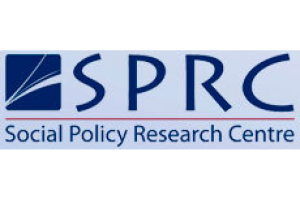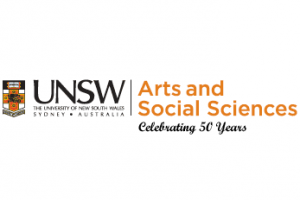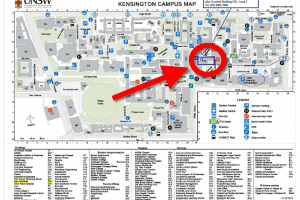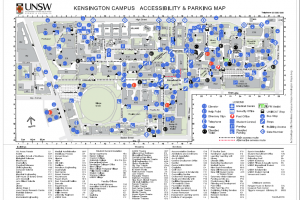
My Expertise
I undertake research on poverty and inequality, the measurement of living standards, income support and labour market policies, consumer equivalence scales, and the geographic dimensions of social policies.
Keywords
Fields of Research (FoR)
Policy and administration, Social policy, Labour economics, Family and household studies, Public economics - publicly provided goodsSEO tags
Biography
Dr Bruce Bradbury is an Associate Professor at the Social Policy Research Centre (SPRC). (See also his UNSW research page)
Recent commentary, presentations and reports
BlueSky: @brucebradbury
- Davidson, P & Bradbury, B (2025) Poverty in Australia 2025, Overview Australian Council of Social Service (ACOSS) and UNSW Sydney https://bit.ly/46ZtZ2A
- Davidson, P, Naidoo, Y., and Bradbury, B. (2025), Poverty...view more
Dr Bruce Bradbury is an Associate Professor at the Social Policy Research Centre (SPRC). (See also his UNSW research page)
Recent commentary, presentations and reports
BlueSky: @brucebradbury
- Davidson, P & Bradbury, B (2025) Poverty in Australia 2025, Overview Australian Council of Social Service (ACOSS) and UNSW Sydney https://bit.ly/46ZtZ2A
- Davidson, P, Naidoo, Y., and Bradbury, B. (2025), Poverty measurement: A Poverty and Inequality Partnership position paper, Sydney: Australian Council of Social Service (ACOSS) and UNSW Sydney. https://bit.ly/43i8WGI
- Davidson DP; Bradbury B; Wong M, (2024) Inequality in Australia 2024: Who is affected and how, Australian Council of Social Service (ACOSS) and UNSW Sydney, Sydney, https://povertyandinequality.acoss.org.au/wp-content/uploads/2024/04/Inequality-Report-2024_who-is-affected-and-how.pdf
- Bradbury, Bruce (2023), Stamp Duty Reform: How to Thread the Needle Between Economic and Political Objectives, Austaxpolicy: Tax and Transfer Policy Blog, 28 November 2023.
- Bradbury, Bruce (2023), Why we should increase rent assistance, Australian Economic Review (2 June 2023) and The rent crisis is set to spread: here's the case for doubling rent assistance The Conversation (11 January 2023).
- Bedford, M, Bradbury, B and Naidoo, Y (2023), Budget Standards for Low-Paid Families, Report prepared for the Fair Work Commission (revised).
- The Conversation: The gap between unemployment benefit and unemployment numbers (26 April 2022)
- Albanese has dropped Labor’s pledge to boost Jobseeker. With unemployment low, is that actually fair enough (21 April 2022)
- Bradbury, Bruce and Hill, T (2021), Australian income support since 2000: Those left behind ACOSS/UNSW Sydney Poverty and Inequality Partnership, Build Back Fairer Series, Report No. 2, Sydney (Twitter summary) (Slides)
- The $50 boost to JobSeeker payment (24 February 2021)
- Inequality in Australia 2020 report. Where do you fit in the Australian income distribution? See our Australian income distribution calculator
- Work incentives are no reason to decrease JobSeeker Submission to Senate inquiry (19 November 2020)
- JobSeeker has fallen well below the minimum wage (21 September 2020)
- If we want workers to stay home when sick, we need paid leave for casuals (13 May 2020)
- The Corona virus supplement (25 March 2020)
- Social protection and the viral recession (20 March 2020)
- COVID-19 has exposed a key weakness in Australian social protection (11 March 2020)
- Sydney is more unequal than other cities, and spatial segregation has increased over the last two decades.
Selected publications
- Bradbury, Abe, Jäntti, Ku and Wang (2022) Explaining the child poverty outcomes of Japan, South Korea and Taiwan in Ku and Saunders (eds) Poverty and Inequality in East Asia. (Newsletter summary, Working paper version)
- Bradbury, Bruce and Saunders, Peter (2021), “Housing costs and poverty: Analysing recent Australian trends”, Journal of Housing and the Built Environment (Open access version at sites.google.com/view/bruce-bradbury/home).
- Bradbury, B, J Waldfogel and E Washbrook (2019), Income-related gaps in early child cognitive development: Why are they larger in the United States than in the United Kingdom, Australia and Canada? Demography. (See commentary on Child and Family Blog).
- Bradbury, B, M Jäntti and L Lindahl (2019), Labour income, social transfers and child poverty. (PDF) Social Indicators Research.
- Bradbury, B and A Zhu (2018) Welfare entry and exit after marital separation among Australian mothers, Economic Record.
- Bradbury, B (2017), Spatial inequality of Australian men's incomes, 1991 to 2011 Revised version of a paper presented at the 2016 Australian Labour Market Research Conference.
- Bradbury, B, M. Corak, J. Waldfogel and E Washbrook (2015), Too many children left behind: The U.S. achievement gap in comparative perspective Russell Sage https://www.russellsage.org/publications/too-many-children-left-behind (Google Play: https://play.google.com/store/books/details/Too_Many_Children_Left_Behind?id=iECpCQAAQBAJ , Project MUSE https://muse.jhu.edu/book/43611)
- Papers on housing wealth and retirement:
- Bradbury, Bruce (2010), Asset rich, but income poor: Australian housing wealth and retirement FaHCSIA Social Policy Research Paper No 41.
- Bradbury, Bruce (2013) ‘The fourth retirement pillar in rich nations’ in Janet C. Gornick and Markus Jantti (eds) Income inequality: Economic disparities and the middle class in affluent countries, (Earlier version), and
- Yates, J. and Bradbury, B. (2010), 'Home ownership as a (crumbling) fourth pillar of social insurance in Australia', http://dx.doi.org/10.1007/s10901-010-9187-4. - Work on the Age Pension relativity (supporting evidence for the increase in the single age pension in 2009). Bradbury B. (2014), 'Pensions for Singles and Couples', Review of Income and Wealth, vol. 60, no. 3, pp. 480 - 498
Code
SAS utility macros Documentation is in the header of each file. Of particular interest for HILDA users will be the HILDALong.sas macro which creates a long file from all HILDA waves and the ABSJack macro which does Jackknife replication using replicate weights (for either ABS or HILDA data). This folder also contains a number of SAS utility macros, macros for inequality calculation and some old Australian Tax/Transfer macros (see TATLIB.TXT for information).
SAS software tools for the analysis of data in the Luxembourg Income Study. Currently includes my code for debugging and submitting SAS programs to LIS.
My Qualifications
BSocSc MCom PhD UNSW
My Research Supervision
Supervision keywords
Areas of supervision
Bruce Bradbury is available to supervise higher degree research students in the following fields: Poverty, inequality and living standards, educational inequality, economics of the household, economic demography, income support and labour market policies, policy evaluation and quantitative social science more generally.
Currently supervising
Bruce currently supervises Rafal Chomik and Dewi Kartika Megasari.



